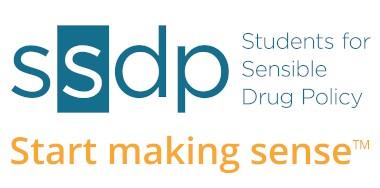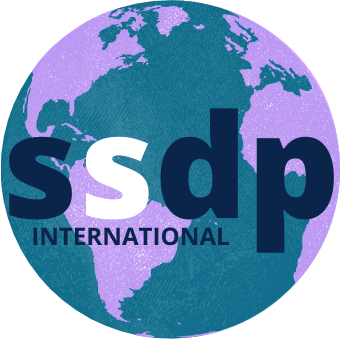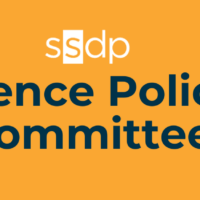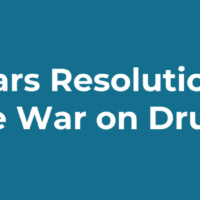Throughout my undergrad, I was determined to arrange (read: finagle) a series of international and domestic opportunities that my university paid for or subsidized in order to pursue further study on drug policy and advance my career. The entry point into getting these excursions paid for developed from my interest in competitive scholarships. The opportunities I dreamed about are those that lead scholars to places like Cambridge or Oxford University, Myanmar, Harvard, and Washington D.C., all on someone else’s dime. Prestigious awards that include (but are in no means limited to) the Rhodes Scholarship, the British Marshall, Fulbright, and the Truman Scholarship are a few examples of the next frontier of conquest for our cohort of drug policy scholars. Likely, you have heard of these awards. If you haven’t, but are curious, I encourage you to explore this website. There are dozens of awards that span from internationally competitive applicant pools, to school or degree specific. Prizes range from all expenses paid, to small stipends. Almost always, the return on your investment of time for applying to a scholarship or fellowship is worth it tenfold, if not much more.
Almost every school will have an office or staff member dedicated to helping students navigate the process of applying to these awards. The website I listed above is just one university that happens to have a very comprehensive website. I encourage you to search for your own universities’ office of national scholarships and fellowships to see what else could be available to you and what resources exist. By meeting with an advisor on campus (or me if you don’t have one and would like help), you can determine what you are eligible for, what awards align well with your own ambitions and goals, and what your timeline for applications should be. Although the majority of the programs I named earlier are not without their criticisms, when SSDP students are able to secure one of these scholarships, it provides an opportunity for harm reduction and drug policy reform to permeate a new territory. The majority of nationally competitive scholarships and fellowships provide high achieving students with funding, mentorship, and most critically, access to people that otherwise would be difficult to tender. I want to encourage students who are vaguely interested in pursuing graduate school, international research, or language training to consider applying to national scholarships and fellowships. The process is demanding, frustrating, and more often than not, disappointing due to the highly competitive nature of the programs. Yet, the self-introspection, crafting of statements, development of positions, and consideration of long term goals is a valuable process for students who bring diverse drug policy perspectives to the geopolitical order. In no way do I consider myself an expert on the subject, but after applying to half a dozen of the most competitive international scholarship programs, I have learned a few things about the process. Here is a list of tips here for you and many more should you be interested in exploring a scholarship opportunity: 1. Start early: These scholarships are demanding of your time, creativity, and editorial capacity – the earlier you begin, the better. This is especially true if you need recommendations. When I was just entering the process of exploring scholarships, I built a spread sheet with all of the opportunities I was interested in applying to each year and made notes about how I could become more competitive for the target awards. For me, my biggest goal was the British Marshall. 2. Create personal deadlines: I encourage you to develop a timeline for when you hope to complete each segment of your application should it be gathering recommendations from teachers, ordering your transcript, or completing your essays. If you can stick to this timeline, you will thank yourself. Re: 1. Build a spreadsheet and dedicate uninterrupted or distracted time to your projects. Start by setting small goals and scale up from there. 3. Ask people to give you feedback: As a general rule I do not ask the people closest to me to be readers. Your parents, significant other, or best friend all love you dearly, but they may not have the most objective and critical eye. Reach out to some third tier friends who are fierce. You want to know their opinion from the get-go. I know this is very hard for some people and I admit, I’m terrible at it, but you really should do this. 4. Edit: I know many of my college aged peers are proud of their essay’s that they submitted last minute and received an ‘A’. Unfortunately, if you are interested in getting (potentially) hundreds of thousands of dollars in external investment for your education and career pursuits, it needs to be top notch and with thorough and rigorous editing. Be ready to put on some serious work pants and roll up your sleeves. If you want to win, this application needs to be awesome! 5. Enjoy the process: Think of the time you spend on these applications as a way to self-reflect and develop goals for the future. By taking the time to write down your career, academic, or personal aspirations you take the first step in realizing those dreams, simply by writing them down. It’s a lot of work, but I think you will find it to be helpful in the long run. 6. Thank people: Remember to thank your writers, editors, and champions. Send a thank you note, take your friend out for lunch, offer to do something in return for your reader. I’m serious, saying thank you in writing or spending a few bucks on someone to show your appreciation will go a long way. Have any questions? Reach out to me at miranda.gottlieb@board.ssdp.org and also your campus representative for national scholarships. Good luck, scholars. **As a side note, the infamous Dr. Kevin Sabet (former G.W. Bush drug czar and leader of SAM) was a Marshall Scholar. It is critical that we get SSDPers into the Marshall program to change the narrative on what these highly valuable (hundreds of thousands of dollars in education) should be funding, academics with an interest in sensible policies.
Rockstars wanted: applying to national scholarships and going cool places
© 2017-2025 Students for Sensible Drug Policy | 1800 M St NW, #33051 Washington, DC 20036 | 202-393-5280 | ssdp@ssdp.org | Subscribe






